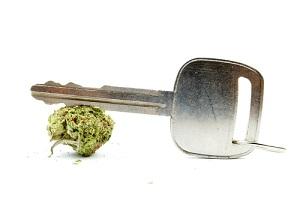Study Challenges Scientific Basis for Marijuana DUI Laws
 When you are pulled over on suspicion of driving under the influence (DUI), it is reasonable to presume that you might be asked to submit to chemical testing for blood-alcohol content, or BAC. The most common form of testing is a breath test, commonly referred to as breathalyzer, which calculates the concentration of alcohol in a person’s blood based on alcohol detected in a breath sample. In all 50 states, the legal limit for BAC (for a non-commercial driver over the age of 21) is 0.08 percent. A test that registers above the limit creates a presumption of DUI based on a quantitative standard.
When you are pulled over on suspicion of driving under the influence (DUI), it is reasonable to presume that you might be asked to submit to chemical testing for blood-alcohol content, or BAC. The most common form of testing is a breath test, commonly referred to as breathalyzer, which calculates the concentration of alcohol in a person’s blood based on alcohol detected in a breath sample. In all 50 states, the legal limit for BAC (for a non-commercial driver over the age of 21) is 0.08 percent. A test that registers above the limit creates a presumption of DUI based on a quantitative standard.
Over the last several years, six states have instituted similar standards regarding the amount of marijuana in a driver’s system. With decriminalization and legalization efforts ongoing around the country and the implementation of medical marijuana programs in about two dozen states including Connecticut, many law enforcement officials believe that there needs to be a quantifiable way of determining that a driver is under the influence of marijuana. A new study from a very reputable source, however, suggests that the existing laws—along with those pending in other states—covering marijuana blood tests have no scientific basis, and even goes so far to recommend scrapping the statutes.
Major Concerns
“There is, understandably, a strong desire by both lawmakers and the public to create legal limits for marijuana impairment in the same manner we do alcohol,” said Marshall Doney, president and CEO of the American Automobile Association (AAA). He went on to say that scientific research does not justify such an approach for marijuana. The AAA Foundation for Traffic Safety recently released a study that looked how such laws were being implemented and whether the results were reasonable. The research found that measuring THC—the chemical component of marijuana that produces the intended high—is not a reliable method of determining impairment.
According to the study, science does not indicate that there is a specific THC level that can create the presumption that a driver is impaired. Too many factors are dependent on the individual. Some people could have measurably high levels of THC concentration but show no signs of impairment while others with very low levels could be extremely impaired. There is also concern over the way in which a person’s body metabolizes THC, as more frequent users may have higher levels of THC for longer than occasional users, and other traces of the drug can last for weeks in the bloodstream.
Alternate Solutions
Based on the study’s findings, AAA is recommending that quantitative standards for marijuana DUI should be replaced with law enforcement officers specially trained to identify impairment. These officers could be supported by a chemical test that verifies the presence of THC, but not a statutory threshold. It remains to be seen how, if at all, state legislatures will respond to the recommendations.
If you have been arrested on suspicion of marijuana-related DUI, you need an attorney who will fight to protect your future. Contact an experienced Hartford criminal defense lawyer today to discuss your case and your available options. Call 860-290-8690 for a confidential consultation at the Woolf & Ross Law Firm, LLC.
Sources:
http://bigstory.ap.org/article/27594d0c278840708e7e3212c1a07c66/study-no-scientific-basis-laws-marijuana-and-driving
http://www.nhregister.com/article/NH/20150808/NEWS/150809510






